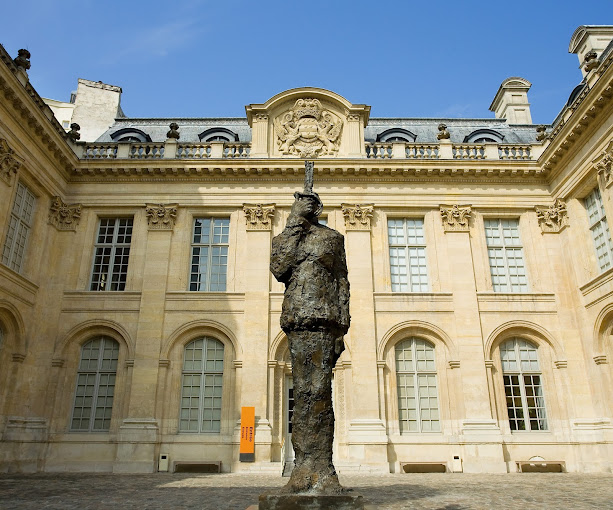The Musée d’Art et d’Histoire du Judaïsme (mahJ) is the largest French museum of Jewish art and history. Located in the Marais district of Paris, France, the museum’s permanent collection presents 700 works of art and objects out of the 12,000 objects in its collection, that represent the history of Jewish communities in Europe and the Mediterranean from the Middle Ages to the present. The museum hosts a variety of cultural events, provides educational services to children and families, offers an extensive media library for visitors and a bookstore with over 5,000 titles.
Cividesk recently spoke with the museum’s IT manager Sébastien Pauly and Communications attaché Louise Tellier to learn more about the challenges they faced before switching to CiviCRM, the reasons they needed to make a change, their experiences transitioning to CiviCRM and the benefits of using this cloud-based database.
Before CiviCRM :
The museum stored their contacts in a FileMaker database, but faced several major limitations with the database, notably, the inability to have all staff members use the program at the same time. Secondly, they had several duplicate copies of FileMaker in use and no possibility of synchronizing the various versions. There were also many inconsistencies within the installations regarding normalization, specifically capitalizations and accents for proper names. Their need to better manage donations, membership and ticketing for museum visitors (all not possible in FileMaker) were additional reasons to identify a solution that would allow them to more effectively manage the daily operations of the museum.
At the same time, they were also in need of a brand new website and decided to use the open-source CMS Drupal as the technology for the development of the site . The Drupal agency in charge of developing the new site suggested using CiviCRM as their database, since it is also open-source and integrates very well with Drupal. They recommended working with Cividesk because of their expertise in CiviCRM and French speaking staff. The museum decided
CiviCRM was a good choice since it is web-based so it could be accessed by all staff, could manage donations, memberships and could be integrated with their ticketing system . They also decided to work with Cividesk not only for the configuration and implementation of CiviCRM but also for their monthly support services such as continued support, mentoring and training .
Implementation and Training :
The most difficult task for the museum during the implementation process was providing a clean data file for import, since they had several FileMaker installations that needed to be combined. Once the database was up and running, Cividesk provided on-site training in French by a ”knowledgeable staff member ” which was essential to a good start with the system. Nevertheless, they still required several sessions later on certain topics to better understand features such as membership management, exporting data and creating reports.
Daily use:
The museum is currently focusing on membership management in CiviCRM, both recording new memberships and sending out renewal notices to expired members. The Schedule Reminders feature in CiviCRM facilitates sending automated emails to members as their membership is about to expire, especially helpful for rolling memberships that expire at various times throughout the year. Having all donations recorded in one place in the contact record is another huge benefit for the museum. “ We have a custom development in CiviCRM where there is an automatic separation of the payment between the membership dues and the donation. We offer a membership category where you can become a member and make a tax-deductible donation at the same time. The custom development automatically splits the contribution so one part is recorded as a membership payment and the other as a donation. This is a recent development
that Cividesk created for us ” explained Louise.
Another custom development created by Cividesk is a special search option where a list of French cities appears once a zip code is entered. Contacts can choose their city name from this list which increases efficiency when filling out an online form and has been a benefit in improving the normalization of the city names in the database. This is especially helpful in French where there are different accents and varying capitalization within proper names.
Staff also uses CiviMail to send mass emails to contacts, conducts searches and exports data, all CiviCRM features that facilitate their daily operations.
Cividesk provides technical support and mentoring as part of the monthly subscription and Sebastien has been very happy with the response to questions.
“ When I send an email to support, I typically have a quick response, despite the time difference since Cividesk has support staff working in different time zones increasing their availability to customers across the globe ” added Sebastien.
Advice for other Organizations considering CiviCRM :
Sébastien recommends taking plenty of time to prepare the files for import and to go through existing data to clean up duplicates. Once CiviCRM has been implemented, “ It’s important to put in place procedures with staff so that everyone uses the database the same way and enters data in a standardized format, otherwise, it becomes a problem where you have no consistency with capitalization and accents ”.
Future Projects :
The museum is working on developing a procedure to ensure compliance with the European regulations on data protection (GDPR). For the time being, their focus is on the daily use of CiviCRM to assist them in more effectively accomplishing the global operations of the museum. “ The continuous support of Cividesk with their quick response to problems or questions that arise is an integral part of that equation.”
